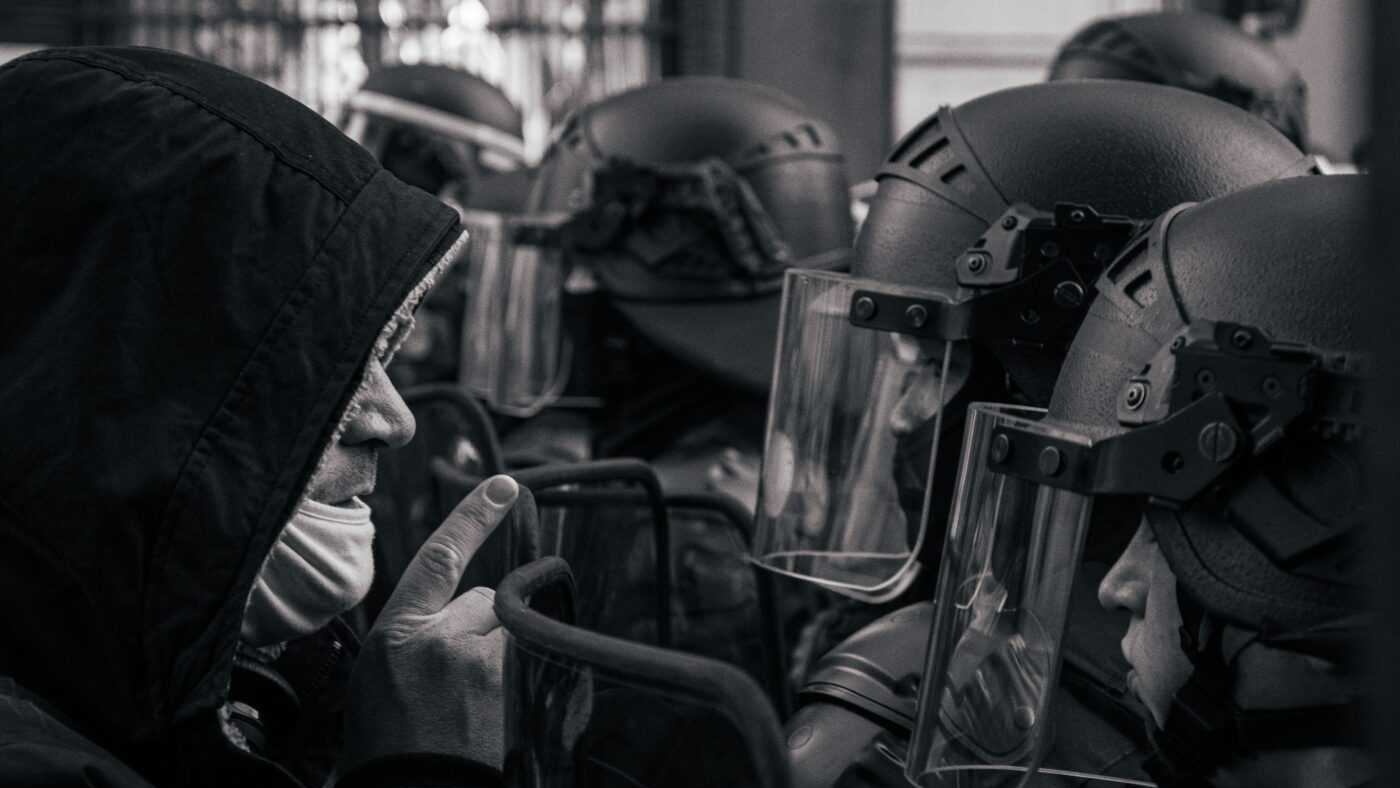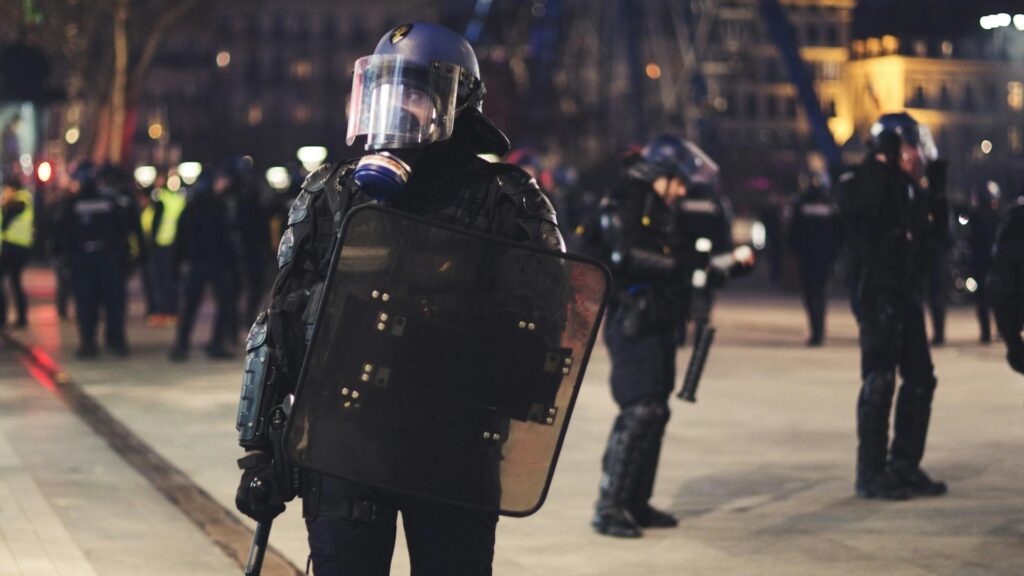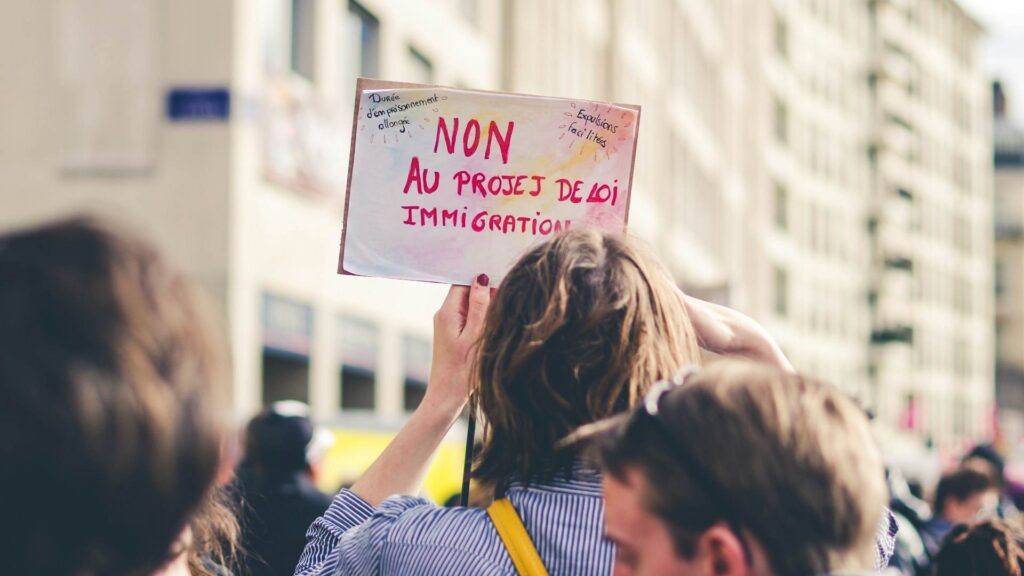Science
Ghost in the Stone: AI Uncovers Prehistoric Clues That Could Rewrite Bird Evolution
17 February 2026

Immigration issues have been one of France’s most prominent public debate topics since the second half of the 20th century. It is no surprise that the law, which came into force in the country at the end of January this year, has sparked disputes. Despite the discrepancies between the various political options on this matter, something has united the French political class beyond ideological divisions. It is a conviction that there are significant areas for serious reform regarding immigration.
The final version of the law signed by President Emmanuel Macron proved to be less restrictive than the one passed by Parliament. Before the document reached the head of state, the Constitutional Council took a closer look and repealed one-third of the provisions. Among other things, it rejected limiting access to social benefits for non-European immigrants. Therefore, these immigrants can still enjoy various social benefits the French system is known for.
Nevertheless, the law is a response to the expectations of this huge part of the French population. Many are losing patience because they increasingly fault their state for leniency toward newcomers from outside Europe, especially from Muslim countries.
To say that France is struggling with illegal immigration is an understatement. According to the French Ministry of the Interior estimates, foreigners with nonregulated status number are between 600,000 and 900,000 (France has about 68 million inhabitants). A meager percentage of these immigrants legalize their stay, and the ghettoization of people from Africa and Asia is a common phenomenon.
Therefore, the fundamental question is: To what extent does the new legal act tighten up migration regulations? The law simplifies a range of procedures, including the deportation of foreigners who have entered into conflict with the French judicature. The powers of the police and gendarmerie have been increased when it comes to border control (and the alleged and non-alleged brutality of these French services has become the subject of legend in the world).

However, at the same time, the new law aims at improving the integration of foreigners with the Republic. If one of them applies for a residence document, now they must sign an agreement obliging them to respect the principles of the French state. These principles include fundamental aspects of modern Western civilization such as gender equality, freedom of speech, and freedom of conscience. This can be interpreted as the Republic‘s efforts to regulate those followers of Islam, for whom the rules of Sharia are more important than Western liberal values.
In the West, two main immigration models are usually distinguished: the Anglo-Saxon and the French. The former emphasizes multiculturalism, which means that it is important that immigrants can preserve their distinct cultural identities. In contrast, the priority in the latter is assimilation, that is, the integration – especially cultural – of immigrants with the native inhabitants of the country in which they reside.
The roots of the French model lie in the history of France. As it is known, the breakthrough moment in this country’s past was the revolution of 1789, which laid the foundations for the Republic.
Before that, France was ruled by kings, and its elites were a cosmopolitan aristocracy. Under the scepter of monarchs, the French were not a national community but formed a collectivity of separate regional identities united by the Bourbon crown.
The nation-creating processes were only ignited by the revolution of 1789, which was motivated – to use today’s jargon – by inclusivism. Under the slogan “Liberty, Equality, Fraternity,” on the ruins of feudalism, the people were to be empowered – among other things, through the popularization of education (although it spread out over time).
Thus, French nationalism went hand in hand with the democratization of French society. This is a significant remark, because today in the West, nationalism is attributed to the right, i.e. to conservative and “reactive” forces. Meanwhile, in France at the turn of the 18th and 19th centuries – but also later – nationalism was progressive – aimed at the heritage of the monarchy and the Catholic Church (and so it was in other European countries).
A “plot twist” occured in the 20th century. French nationalism has shifted towards the right-wing direction. But first of all, it is necessary to focus not on ideological ferment, but on social changes after World War II. And here we come to immigration issues.
We recommend: SNAFU: Sweden at War with the Suburbs
During the 20th century, there were two large waves of immigration in France: One in the interwar period, and the other from the 1950s to the 1970s. What is important in the latter case is that the population from outside Europe arrived then. At the time, decolonization was going through the world, which also affected the French overseas dominions.
It is important to mention in particular the declaration of independence by Algeria in 1962, following a “national liberation” war between the Algerians and the French. The ties between the French state and its colonies in North Africa were extremely deep. This determines the specificity of immigrants from the Maghreb countries in modern France because in some way they have reason to perceive it as something closer than a foreign land.
It is significant, however, that half a century ago, immigrants from Muslim countries were not in a heated cultural conflict with the Republic. This shift emerged as a consequence of the cultural changes that remodeled the West in the 1960s and 1970s. In France, they are associated with the aftermath of May 1968 – a student revolt against the bourgeois, “fascist” (because such an adjective was used) political and social order symbolized by the presidency of General Charles de Gaulle.

In French public life, the ideas of the new left gained prominence. Inspired by them, intellectuals – opinion leaders, and thus influencing the political class – began to demand the rights of social groups, which they claimed had been persecuted throughout history by white, heterosexual Christians. These groups included immigrants from outside Europe, particularly from Muslim countries, who were viewed as victims of French racism.
And so the ideas of the new left collided with French republicanism. Or, precisely, with French republican nationalism, more or less demanding that foreigners who want to be at home among the French need to assimilate. Whereby, it must be strongly emphasized that French republicanism upholds strict secularism. It stands guard over the separation of the Church (Catholic) from the state established in France in 1905. It would seem that France is a secular country.
Paradoxically, however, the French new left anti-racism – which stands in opposition to Christianity as a symbol of the “white man civilization” – has become an ally of something entirely anti-secular, namely Islamic fundamentalism. It is intriguing, for example, that one of the mentors of the new left, the leading authority of the postmodernist environment, the philosopher Michel Foucault, supported the Ayatollah revolution in Iran in the late 1970s. The fact that he was an open homosexual and yet took sides with Iran’s “homophobic” movement adds spice to the issue.
At the same time, in France, the deracination of immigrant circles began to rear its head. The youth deriving from them did not find themselves in the French concrete suburbs. On the one hand, they organized themselves into common criminal groups, and on the other – what the French historian Gilles Kepel described as “God’s revenge” – they became vulnerable to radical versions of Islam. Since the 1980s, they have been a problem for Western countries inhabited on a massive scale by people from Muslim countries.
We recommend: Migration and Global Economy. How Countries Adapt to the New Challenge
In the face of such phenomena, French republicanism proves to be inadequate. That is why already at the beginning of the 21st century, even a part of the establishment – like Nicolas Sarkozy as Minister of the Interior – concluded that it is necessary to give up political correctness and take a sharp turn toward immigrants from outside of Europe especially since the threats from them provided political fuel to the National Front, an anti-immigrant party fought by the major forces of the French political scene.
Thus, initiatives such as the law introduced in 2004 prohibiting the wearing of burkas, that is, head coverings for women who profess Islam, in public schools. However, immigrants from Muslim countries are still causing trouble in France. Is the new law a cure for it?
Only time will tell. However, the legal act in the version signed by President Macron has been severely criticized by the right – both the National Rally (the continuator of the National Front) – the anti-establishment political grouping led by Marine Le Pen, and the establishent Gaullists from the Republicans party.
As far as immigration is concerned, history admits that the National Rally is for now right.
Translation: Marcin Brański
Polish version: Imigranci we Francji. Porażka francuskich elit
Science
17 February 2026

Science
17 February 2026


Zmień tryb na ciemny